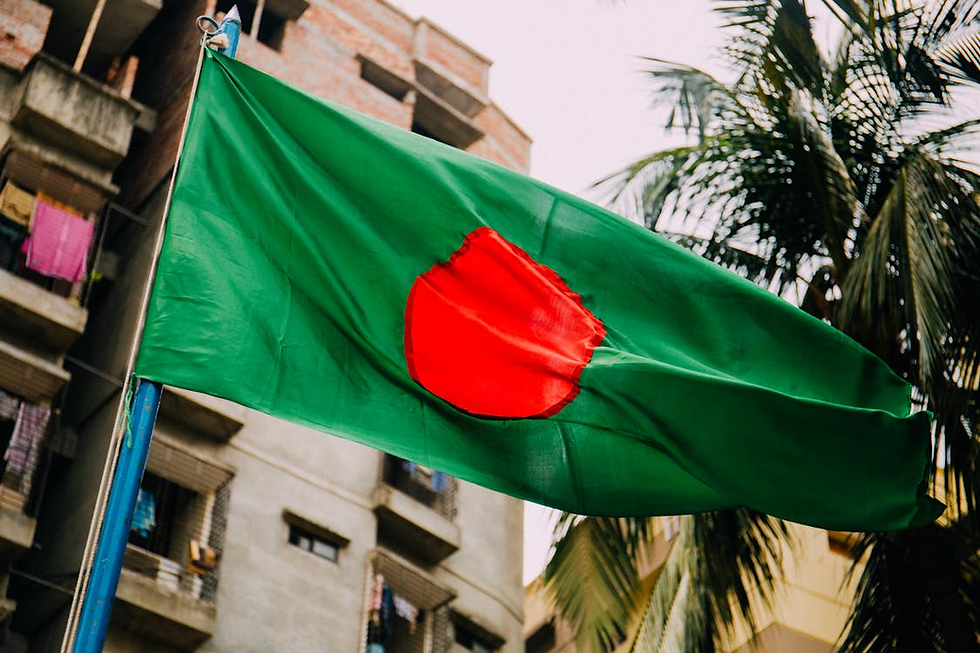Student Protesters Challenge Thailand's Government
- Heather Gosling
- Aug 27, 2020
- 3 min read
Updated: Dec 23, 2024
Heather Gosling writes about the recent student-led protests in Thailand. Activists have three demands, and hope to achieve true democracy. Amid accusations of corruption and fears of a dictatorship, campaigns have been launched both on the streets and online. Much of this anger stems from the dissapearances of various dissidents, and many continue to be detained. Learn more about the Thai government's history of protests, and, specificially, coups.
Thousands of people have gathered in Bangkok to demand reforms to Thailand's government and monarchy. Anger was sparked in February when the the opposition party Future Forward, which had become popular among young people, was dissolved. Then, rumours emerged that a prominent activist and government critic, Wanchalearm Satsaksi had been abducted in Cambodia where he was in exile. Several other exiled activists have also disappeared, but the government has denied involvement. In response, students have taken to social media to organise protests calling for revolutionary reforms that will curb the King’s powers, and encourage democracy. The anti-government protests began in July, and continued almost daily throughout the month.

On Sunday 16th of August, 10,000 people gathered at Bangkok’s democracy monument, which has often been used as the site for anti-government protests. It is thought to be the largest anti-government rally held since the 2014 coup where army general Prayuth Chan-Ocha took power. The protesters have three key demands: the resignation of Prime Minister Prayuth, a revised constitution, and an end to the relentless persecution of government critics. Currently, anyone found to be criticising the Thai monarchy faces a prison sentence of 15 years under Thailand’s lese-majeste law.
During the 2014 coup, Prime Minister Prayuth had the military write a new constitution that entrenched the party’s Pro-Military agenda, and increased the King’s powers. The document was ratified in April 2017. A few months later, King Vajiralongkorn assumed the throne, and removed the need for the monarch to appoint a regent when travelling overseas. The King also allowed the military to appoint a 250 member Senate, which was to have a say in who became Prime Minister. During the election in March last year, the Palang Pracharath party came second. The leader of the party, Prayuth Chan-Ocha, still became Prime Minister. Thus, many fear that Thailand is becoming an absolute monarchy.
Critics of Thailand’s government have argued that the involvement of the King and the military in politics has caused a crackdown on free speech. The UN's high commissioner for Human Rights has stated that the number of people investigated for speaking out against the monarchy has risen to more than double the number of people investigated in the previous 12 years. Prime Minister Prayuth Chan-Ocha has condemned the protesters' actions, stating that Thailand is facing greater problems from the consequences of the coronavirus pandemic. His party Palang Pracharath has stated that the people of Thailand “won’t let anybody destroy an institution that is loved and respected”.
Perhaps “loved and respected” are not the terms many students would use to describe their sentiment towards their country’s government. During the protests, students waved banners and shouted : “Down with dictatorship! Long live democracy!” Panusaya Sithijirawattanakul, a third year university student, was at the forefront of the protests and read out a list of ten demands to reform the monarchy, which has always been exempt from any criticism. She wore a red blouse, a colour associated with the “Red Shirts”, a left-leaning political movement who fight against dictatorship. The list of demands included cutting the budget provided to the King and the palace, and ending the “one sided” education system that glorifies the monarchy. Last on the list of demands was: “The King must not endorse any further coups”. In a country where the monarchy is considered sacrosanct, her demands were unprecedented.
Several activists have already been arrested, including Anon Nampa, a human rights lawyer. However, none of those detained have been charged with the harsh lese-majeste law, suggesting that the government knows any backlash against protesters will only fuel the movement. As student demonstrators show their support for democracy with the three finger Hunger Games salute, there is hope, and fear, surrounding Thailand's future.

_edited.png)



Comments